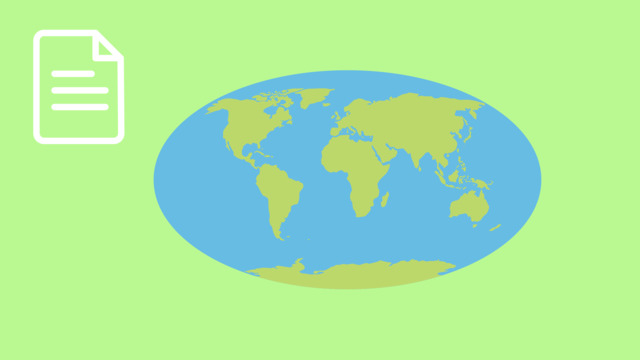Where Do We Have Water on Earth?
Learning text on the topic Where Do We Have Water on Earth?
Water on Earth – Introduction
Have you ever wondered where all the water comes from that you use in your home? Water is everywhere around us. We drink it, swim in it, and even use it to clean things. Let's dive into the world of water and learn where we can find it!
Where do we have water on Earth?
Most of the Earth is covered with water. In fact, about 71% of the Earth is water!
Water is in the oceans, rivers, lakes, and even under the ground! But not all water is the same; some water is salty like in the oceans, and some is fresh like in lakes and rivers.
Water Cycle
The water cycle is nature's way of recycling water. It has four main stages: evaporation (water turns into vapor), condensation (vapor turns back into tiny water droplets), precipitation (droplets fall as rain or snow, sometimes into lakes), and runoff (water flows back into oceans or rivers).
| Stage | Description |
|---|---|
| Evaporation | Water from oceans, rivers, and lakes warms up by the sun and goes up into the air as vapor. |
| Condensation | The water vapor cools down in the sky and turns into tiny water droplets, forming clouds. |
| Precipitation | The water droplets in the clouds get too heavy and fall back down to Earth as rain or snow. |
| Runoff | The rainwater flows over the ground and collects in rivers and lakes, starting the cycle over. |
Oceans
Oceans are very important because they hold most of the water on Earth. They're not just flat and shallow; they have deep spots where it's so dark that sunlight can't reach. Some parts are deeper than the tallest mountains are high!
Oceans also help our planet stay just the right temperature. They soak up heat from the sun and move it around the world through big water streams called currents. This helps make sure that some places don't get too hot or too cold.
Even though we can't drink salty ocean water because it’s too salty, oceans play a big part in getting us fresh water to drink. Here's how it works: The sun warms the ocean, and some of the water turns into vapor and goes up into the sky. This vapor cools down and turns back into water, forming clouds. Later, this water falls as rain or snow, filling our lakes and rivers with fresh water. The ocean is a big part of a water-making machine that is known as the water cycle.
So, oceans are not just large bodies of water; they are key players in Earth's water cycle, helping to make sure we have the water we need.
Rivers
Rivers are like nature's highways that carry water across the land. They start from small streams or springs, sometimes high up in the mountains, and travel long distances to join lakes, other rivers, or eventually flow into the oceans. Rivers are sources of fresh water, which means they don't have salt like the oceans do.
These moving waters are very important for the Earth. They help water the land for plants, animals, and humans to thrive. People build towns and cities near rivers because they provide water for drinking, farming, and sometimes even for generating power through dams. Rivers also help carry rainwater from the land back to the oceans, keeping the water cycle going.
Lakes
Lakes are like big bowls of water surrounded by land. Unlike rivers, lakes usually stay in one place and don't flow like rivers do, but they're also filled with fresh water. Lakes can be small, just a little bigger than a pond, or very large and deep.
Lakes are special because they can store a lot of water. This water comes from rain, melting snow, or streams feeding into the lake. Some lakes are used as reservoirs, which means people have built dams to store the water in a lake so it can be used for drinking, for crops, or even generating electricity.
Groundwater
Think of the Earth like a big sponge that can soak up water. This water hidden under the ground is called groundwater. It fills tiny spaces in soil and rocks, like water filling up holes in a sponge.
When it rains or snow melts, some of the water goes down into the ground and adds to this hidden water supply. In some places, this groundwater comes out naturally as springs. Other times, people dig wells to get to it.
Groundwater is really important because it's a big source of fresh water for us to use, especially when rivers and lakes are low. But we have to be careful not to use too much, or it might run out. We also need to keep it clean because pollution can make it unsafe.
Let's check what you've learned!
Water Cycle Experiment
Let's see how the water cycle works with a fun experiment!
How Well do You Understand Water on Earth?
Let's see how much you remember and learn some fun facts!
Water on Earth – Summary
Key Learnings from this Text:
- Water is found in oceans, rivers, lakes, and underground.
- The water cycle helps recycle water through evaporation, condensation, precipitation, and runoff.
- Water is essential for all living things, but not all water is drinkable without treatment.
As you have learned, water is very important to Earth. Keep exploring water and learn about oceans and seas, rivers and lakes, and even water in different forms!


















